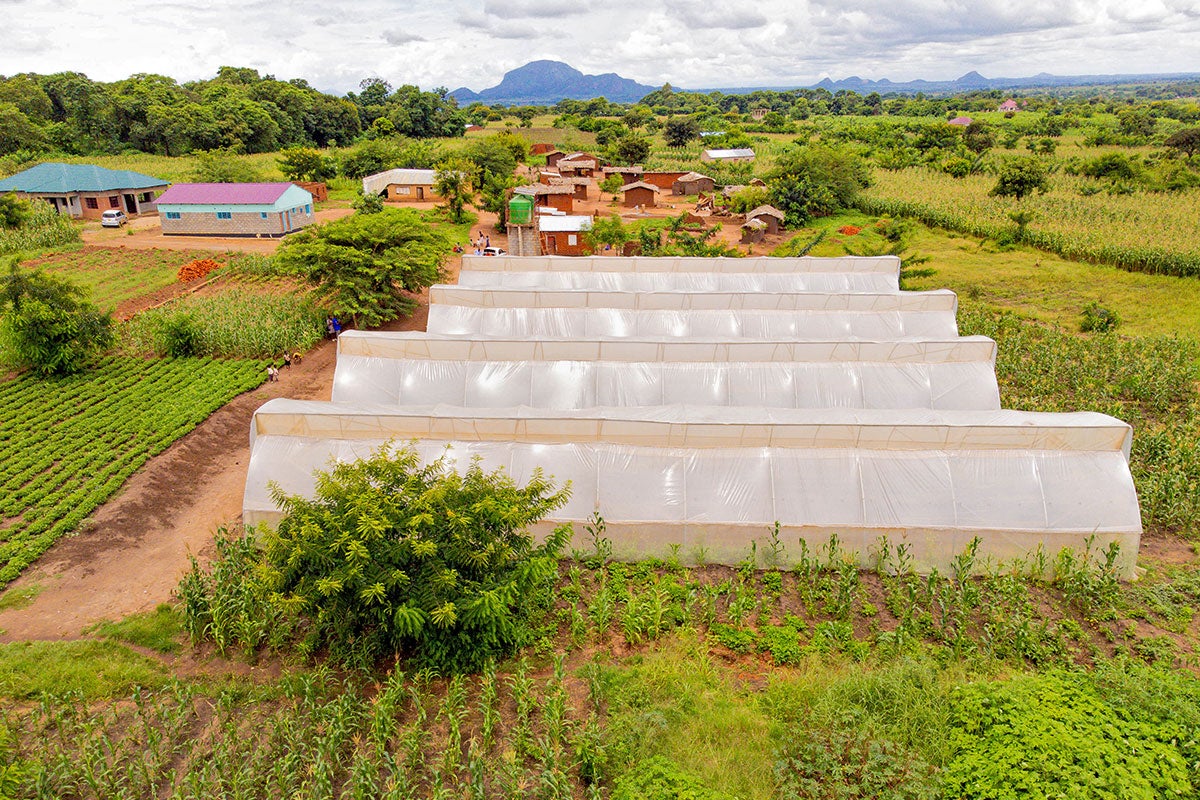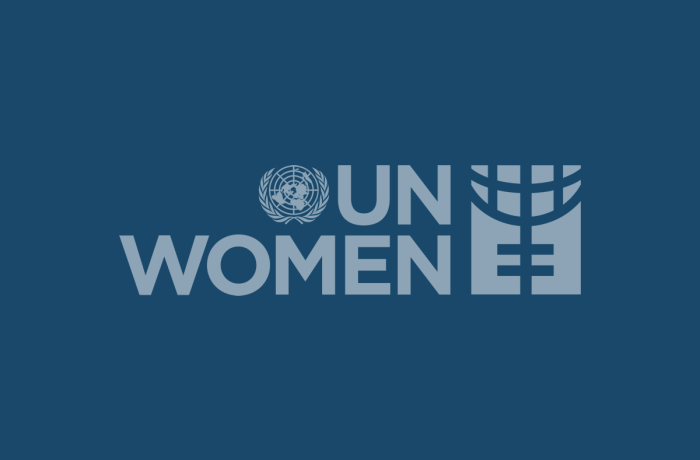Women farmers in Malawi tackle climate change and gender inequalities through greenhouse programme
The greenhouses of the Kambuku Cooperatives stand proudly among newly planted maize fields about 23 kilometres from Malawi’s capital city of Lilongwe. The facilities stand out not just because they represent an innovative farm practice for the region, but also because they aim to address both climate change and gender-based inequalities faced by women farmers.
Women constitute 70 per cent of full-time farmers in Malawi, and produce more than 80 per cent of subsistence crops. Although farmers in the country typically rely on natural rains for cultivating their crops, the country is prone to dry spells, intense rainfall, pests, and disease outbreaks, all of which are worsened by climate change.
“Climate change and food and nutrition insecurity have posed the greatest development challenges of our times”, said UN Women Malawi Representative Letty Chiwara. “Only greater investments in sustainable food system will ensure food security for all.”

Prose Mgundamavo, a member of Kambuku Cooperatives, agreed, noting that, “increasingly extreme weather would ruin our crops”.
Three project sites—in Lilongwe, Salima, and Mzimba, featuring 10 greenhouses in total—were built by UN Women with funding from the Korea International Cooperation Agency. With a budget of USD 400,000, innovative solar-powered facilities have been deployed at the three sites.
Since 2020, the Kambuku Cooperative in Lilongwe’s 98 members—71 of whom are women—have grown tomatoes, green peppers, leafy vegetables, and strawberries, generating over 14 million Malawi Kwacha (USD 517,000) as of late 2023. The group used that money to contribute to the building of a warehouse to store their products and bought extra water pumps. In early 2024, the cooperative won a one-year contract of 500,000 Malawi Kwacha (USD 18,500) to provide leafy vegetables to schools in Lilongwe monthly.
UN Women also partnered with the local woman-owned business Thanthwe Farms to provide support to workers on the sites, with trainings on integrating women into decision-making processes and on climate-resilient agriculture techniques, including crop diversification and water management.
A total of 2,427 women farmers who attended those trainings have gone on to utilize the skills to set up or grow their businesses.
In Mzimba, the trainings inspired the women of the Umoza and Mpharayi Cooperatives to revise their methods for growing and packaging green peppers. After making those adjustments, the cooperative was able to secure business with a hotel in Mzuzu, the biggest city in northern Malawi.
“We benefited a lot in learning about the climate-smart agriculture farming”, said Cecelia Lungu, the Mpharayi Cooperative’s vice chairperson. “Times are changing and we need to learn new technologies to increase our harvest yields.”
She added, “When the project first started, I promised myself that I will start implementing what I have learned on producing higher yields of good quality crops in small, sheltered structures and spread it to other farmers.”
The greenhouses also serve as demonstration sites, attracting research students from the Lilongwe University of Agriculture and Natural Resources, the country’s largest university focusing on agriculture. Ruth Kampatura, the Kambuku Cooperatives’ treasurer, said her son’s studies at the university had been prompted by his visits to the greenhouse.
“My son watched as the first greenhouse was installed all those years ago, he would follow me around as I worked in the greenhouses and would ask questions about how crops would grow so well in them”, she said. “Now he has joined the cooperative and says that he will expand the greenhouse business for us when he finishes university.”
Kambuku Cooperatives have secured a government agricultural grant of 34 million Malawi Kwacha (USD 1.26 million) to expand their infrastructure with a warehouse. The cooperative has branched into raising new crops such as beans and orange maize, and hired two new employees, contributing to cooperative members’ dream of creating more jobs in the community.
“Investing in women farmers who are the backbone of our agriculture sector is key to ending poverty”, said Esnart Kalunga, the Malawi Government’s Agriculture Extension Officer in Lilongwe East. “We need to sustain and build this momentum of supporting women to excel in farming activities so that together we can truly empower women farmers to be resilient.”








